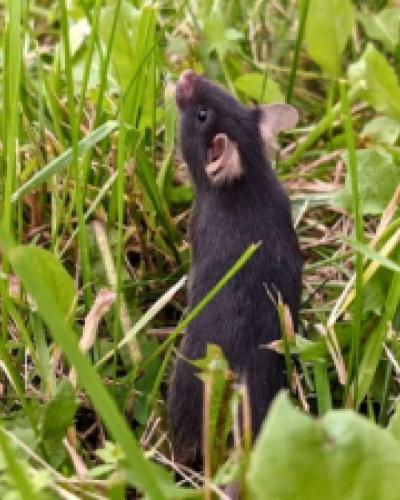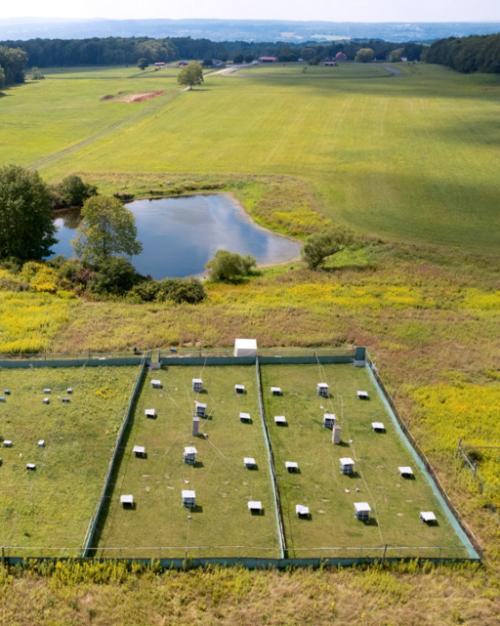Though the COVID-19 pandemic has stymied travel and business-as-usual for many, Cornell’s Office of Academic Integration – which fosters collaborations across disciplines and between the Ithaca and New York City campuses – has thrived.
The office reported that previous multi-investigator seed grants and conferences, which helped researchers network, plan and acquire preliminary data, yielded over $33 million in federal grants last year.
Now, the program has announced 15 new multi-investigator seed grants, for a total of $1.2 million in funding. The grants will support a wide array of work including research on the intersection of climate change, pollen and asthma attacks, and a project to develop a microbial delivery system for a unique treatment of colorectal cancer.
“The Academic Integration program acts as a catalyst for researchers on both campuses to come together, where they’re able to embark upon research projects that would have been impossible without this initiative,” said Gary Koretzky ’78, vice provost for academic integration.
“We’re particularly gratified that we’re seeing pairings of junior and senior investigators, as well as relationships developing between the many colleges on the Ithaca campus with colleagues in New York City,” he added. The new seed grants include researchers from eight colleges, along with co-funding from campus centers for two of the projects.
“The seed grant program started off being very much related to basic biomedical science,” Koretzky said. “Now we’ve got investigators from biomedical engineering, social sciences, and population health, so we really have expanded where we’re building these connections between campuses.”
One seed grant was awarded for a project titled “Climate Change, Pollen and Asthma Attacks,” led by faculty at different career stages, including principal investigator (PI) Ariel Ortiz-Bobea, associate professor of applied economics and policy in the Charles H. Dyson School of Applied Economics and Management and theJeb E. Brooks School of Public Policy, and co-PI Jing Li, assistant professor of population health sciences at Weill Cornell Medicine.
The project, which is co-funded by the Cornell Atkinson Center for Sustainability, will analyze how climate change affects pollen seasons and potential risks to people who suffer from airborne allergies and asthma. The researchers will combine a dataset of daily pollen counts over the last 20 years with zip-code level information on U.S. hospital admissions to estimate relationships between pollen levels and severe allergic episodes. The investigators intend to use their seed grant to gather preliminary data to apply for federal funding. The project aligns with Cornell’s planned climate initiative, a university-wide effort that will launch this year to harness the collaborative scholarship, science, innovation and entrepreneurialism at Cornell to develop tangible climate solutions.
Another seed grant was awarded to the project “A microbial delivery system for anti-colorectal cancer ubiquibodies,” co-funded by the Sandra and Edward Meyer Cancer Center at Weill Cornell Medicine.
Led by project PIs Matthew DeLisa, the William L. Lewis Professor of Engineering and director of the Cornell Institute of Biotechnology in the Robert Frederick Smith School of Chemical and Biomolecular Engineering in the College of Engineering, and Dr. Pengbo Zhou, professor of pathology and laboratory medicine at Weill Cornell Medicine, the project will address the challenge of how to deliver therapies inside cells for pharmacological manipulation of difficult-to-drug protein targets that play key roles in cancer. The team aims to develop an intelligent microbial delivery system based on Salmonella enterica strains (with reduced virulence) to efficiently deliver payloads of a novel therapy into colorectal cancer cells to inhibit tumor growth. Part of the work will be to develop the therapy, a technology called ubiquibodies, which, once delivered inside cancer cells, can redirect target proteins toward cellular machinery that degrades and destroys them.
A request for applications for 2022 multi-investigator seed grants has been released and the deadline for letters of intent is March 24.
Read the story in the Cornell Chronicle.




